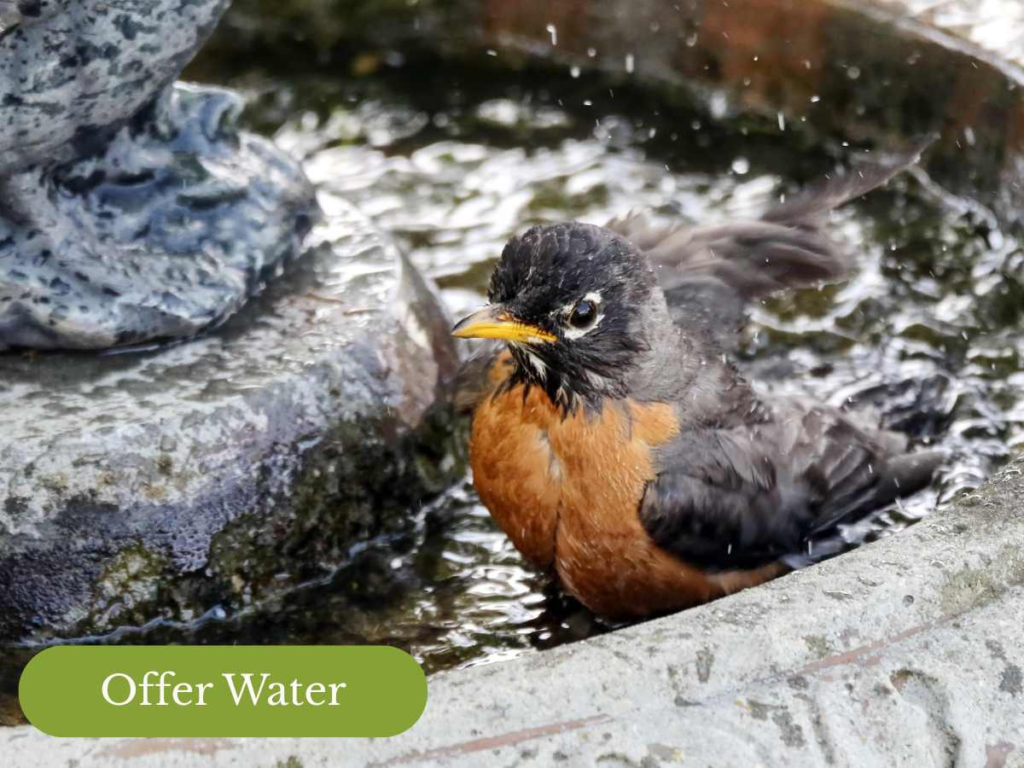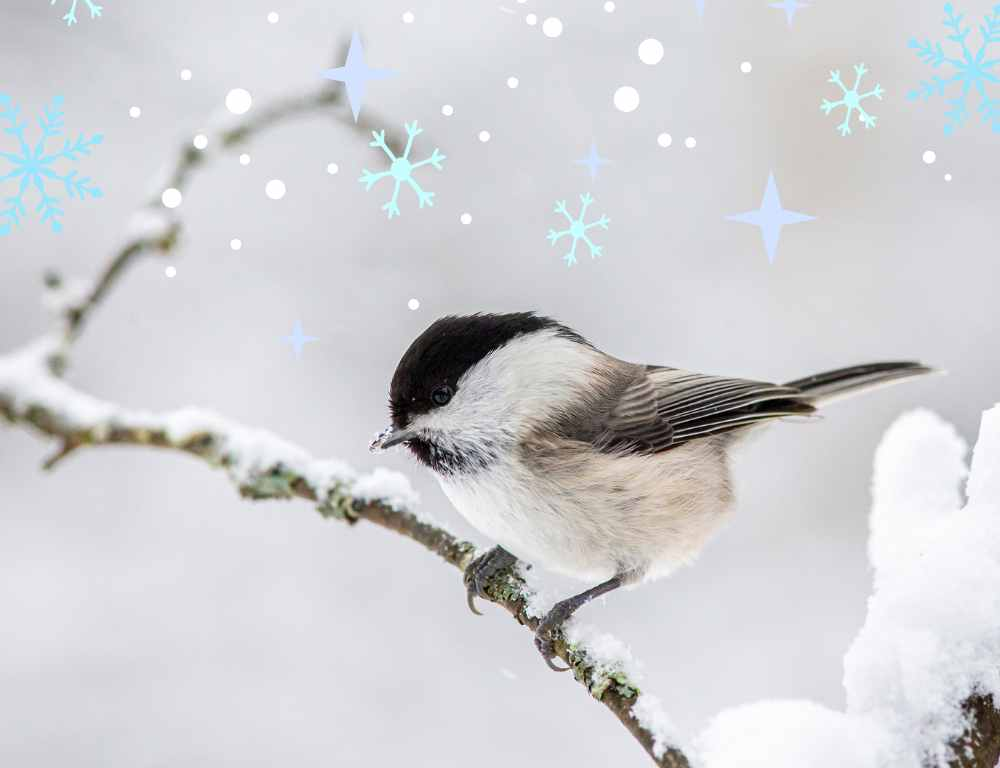Winter can be a tough season for our backyard birds. As snow covers the ground and natural food becomes scarce, many species rely on a little extra support from kind humans to make it through. The good news? You don’t need to be an expert or have a huge yard to make a difference. With just a few simple steps, you can turn your backyard into a cold weather haven for birds and get to enjoy their cheerful presence all winter long.
Here are some practical, low effort ways to help birds survive winter right where you are.

1.
Keep Feeders Full And Choose the Right Food
In winter, calories are life. High-fat, high protein foods like black oil sunflower seeds, suet, peanuts, and nyjer seed are excellent fuel for birds in the cold.
Tip: Place feeders near shrubs or trees to give birds quick shelter from predators and wind.
Don’t worry if you’re not a “feeder expert” even one reliable feeder can make a big impact.

2.
Offer Water (Yes, Even When It’s Freezing)
Water can be harder to find than food in winter. A heated birdbath is a game changer. Birds will come not just to drink but also to preen, which is essential for keeping their feathers insulated and waterproof.
Budget-friendly tip: You can also use a simple heated dog bowl or add warm water to a regular birdbath throughout the day.
3.
Provide Shelter from the Wind and Snow
Birds need places to hunker down in harsh weather. Shrubs, brush piles, evergreens, and even roosting boxes can offer safe hiding spots.
Try this: After trimming bushes or your Christmas tree, pile the branches in a corner of your yard for a natural shelter.
4.
Don’t Deadhead Everything in the Fall
Leaving seed heads on native flowers like coneflowers, goldenrod, and sunflowers provide winter snacks for finches, chickadees, and sparrows.
Bonus: Those dried stalks also house overwintering insects extra protein for birds like wrens and woodpeckers come spring.

5.
Limit Pesticides and Let the Leaf Litter Be
Even in winter, birds forage for insects and larvae under leaves and bark. By skipping chemicals and letting parts of your yard stay a little “wild,” you’re keeping their food sources intact.
6.
Keep Your Feeders Clean
It’s easy to forget, but moldy seed or dirty feeders can spread disease, especially when birds are flocking to limited resources.
Quick habit: Give your feeders a rinse every couple of weeks with a diluted vinegar solution (or 1 part bleach to 9 parts water if needed), and dry them thoroughly.
Final Thoughts: Your Backyard Can Be a Lifeline
Winter bird care isn’t about doing everything perfectly, it’s about showing up with small acts of kindness. The chickadees, juncos, woodpeckers, and cardinals that brighten your yard will thank you in their own way: with songs, color, and resilience through the snow.
So go ahead hang that feeder, leave the leaf pile, and keep that birdbath from freezing. You’re making a real difference.

